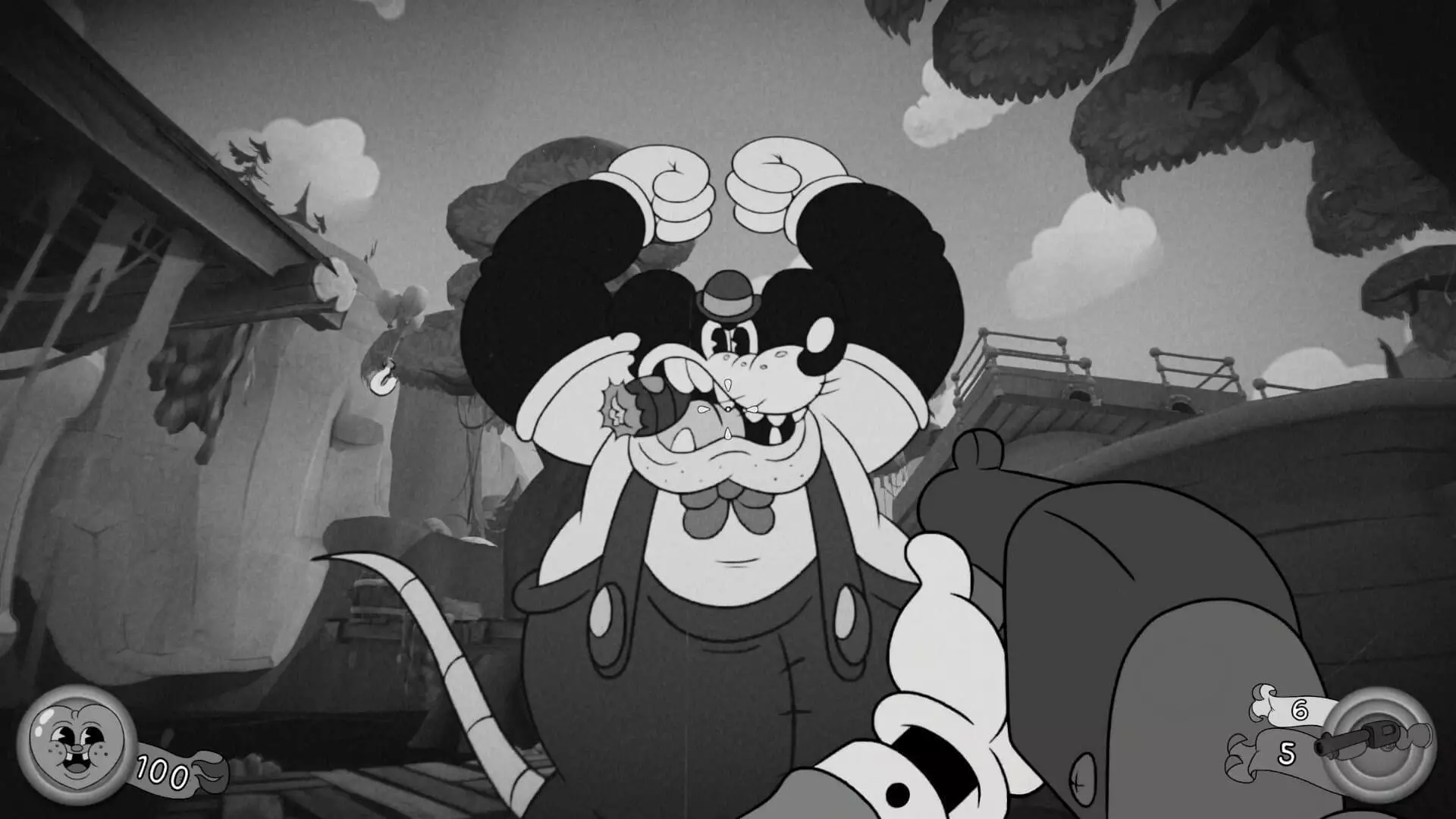In an era where video games frequently chase hyper-realistic graphics, Fumi Games’ upcoming title, MOUSE: P.I. For Hire, offers a refreshing departure. The game, drawing inspiration from the iconic animation styles of the 1930s, has stirred excitement and curiosity within the gaming community. Its distinctively artful design not only pays homage to the likes of Disney and Fleischer Studios but also captures the attention of many with its rich visual storytelling. By intentionally choosing a whimsical aesthetic, Fumi Games successfully highlights that games can be both visually captivating and narratively engaging.
However, it would be simplistic to claim that MOUSE: P.I. For Hire is merely a retro-themed adventure. Instead, it expands the boundaries of what such animation can convey. As articulated by Mateusz Michalak, the Game Director, the game acts as a “twisted mirror” reflecting the complexities of 1930s America while using humor as a medium for critique. This multi-layered story signals a shift in gaming, where visual charm can coexist with serious societal commentary, thereby enticing a broader audience to engage with pertinent themes through the lens of nostalgia.
Fumi Games aims to do more than simply entertain; they delve into the realm of socio-political commentary by illustrating issues resonant both in the past and in contemporary society. The game’s narrative takes cues from the life and struggles of its protagonist, Jack Pepper—a war veteran turned detective. As players traverse the urban sprawl of Mouseburg, they inevitably confront a landscape riddled with challenges emblematic of historical injustices and societal failings.
One of the pivotal influences on MOUSE: P.I. For Hire is Charlie Chaplin’s iconic film, The Great Dictator, which endeavors to satirize the leadership of Adolf Hitler. This subtly woven thread of satire through the game’s narrative aims to challenge extremist ideologies, suggesting that mockery can become a form of resistance. By transforming a mouse into a detective, the developers don’t merely emulate the light-hearted storytelling we often associate with vintage cartoons; they deconstruct it to address corruption, racism, and the consequences of war—issues that society grapples with even today.
This consistence in narrative intent signals a sharp evolution in the gaming medium, where storytelling is layered with historical relevance and emotional depth. Players are not simply recipients of entertainment but are invited to engage deeply with materials that resonate on both intellectual and emotional levels, enriching their overall experience.
However, a critical lens must also be turned toward the game’s execution. While the blend of animation and narrative is compelling, Fumi Games faces the inevitable challenge of balancing aesthetics with gameplay quality. The visual appeal, while a magnet for interest, can only sustain player engagement to a point. Lead Producer Maciej Krzemien aptly notes that failure to deliver a gameplay experience that matches the game’s artistic ambitions could lead to a swift loss of interest among players.
Attention to detail is crucial; the gameplay must offer an engaging experience that echoes the vibrancy of its visual elements, or it risks becoming a fleeting whimsy rather than a lasting classic. Hence, Fumi Games’ robust commitment to holistic development—where animation, narrative, and gameplay function in harmony—becomes imperative. This careful coordination guarantees that the game enchants players on multiple levels, ultimately enhancing its longevity and appeal.
What remains clear is that MOUSE: P.I. For Hire has the potential to be a groundbreaking exploration in the gaming landscape. By choosing to harness the nostalgic allure of classic animation styles, Fumi Games doesn’t just aim for superficial beauty; it cultivates a mix of charm and authenticity in storytelling. This approach is not just about aesthetics—rather, it serves as a platform for discussions about underlying societal issues, allowing players to reflect and engage thoughtfully within a seemingly whimsical universe.
As anticipation builds for its 2025 launch, MOUSE: P.I. For Hire represents an intriguing blend of art, history, and clever satire, setting it apart from the plethora of more conventional releases. Equipped with the intention to deliver not only fun but also reflection, Fumi Games seems poised to create a rich narrative that resonates with both gamers and a broader audience. As the gaming world eagerly watches this project unfold, it is clear that MOUSE: P.I. For Hire may well set the stage for a new era of meaningful video game storytelling.


Leave a Reply